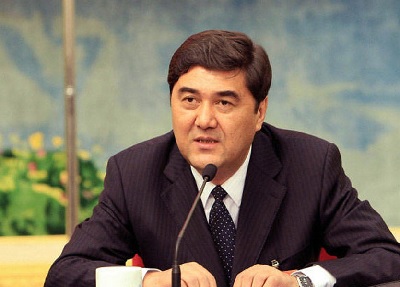National information
Official Name: Republic of Brem 大㐭民國
Shortened Name: Brem 㐭國
Requested Location: here
Requested Population: 81 million
Culture: Sichuanese/Ba-Shu cultureGovernment Type: Aristocratic republic
- Ethnicity: !Sichuanese with pockets of Tujia, Tibetan, Naga, Assamese, etc.
- Religion: Xiaodongese folk religions, Satyaism, shamanic/animistic religions, all given a very vague Amendist Sotirian gloss
- Languages: Southwest Mandarin is most widely spoken
Head of State: Sen Cuan 孫川
Head of Government: Niu Uan 劉淵
Requested GDP Per Capita: $13,000
National Overview: Situated in a basin with a fertile river valley, Brem was historically a defensible and productive province of the Xiaodongese empires, and prior to that was inhabited by a civilization created by the !Tujia. Beginning in the late Jiao period increasingly powerful local governors asserted the region's effective independence although close relations were retained with the Xiao heartland, until it was reincorporated into a centralized Xiaodong under the Heavenly Empire. After Xiaodong lost the Great War and fell into civil war, generals with a local background redeclared independence and resisted an attempt at reannexation. The dictator Ni Xuan 李旋 implemented a reform program in the 1970s inspired by a hodgepodge of foreign ideas, among them Amendist social teachings, which has a strongly felt legacy today.
There is a diverse array of social institutions and forces wielding power in Brem, including traditional land-owning aristocrats, big tech entrepreneurs, temples and other religious institutions, secret societies, mutual aid associations, and government cadres tasked with creating special economic zones or other political experiments. Their patronage and power over the meek population overlaps and conflicts frequently, yet is also in many ways clearly delineated and distinct.
Brem is traditionally known for its spicy cuisine and sometimes beautiful women. It would historically be part of one of the trade routes linking Xiaodong to Hyndana and Zorasan, and would have played this to its advantage (even today), while accumulating appropriate cultural influences from the process. The economy is characterized by domination by SMEs, average living standards, employment of many in cottage industries, and lucrative tourism.
Brem's aesthetic is sort of 'rural/newly urbanized China' in all its absurdity
Military Overview: Relatively small but well-armed professional force supported by militias and an armed citizenry meant to deter or preempt Xiaodongese invasion, and occasionally mop up spillovers of nearby insurgencies.
Social views:
- General population's view on LGBT+ rights/LGBT+ people: Disapproval
- General population's view on religions other than the primary one: Indifferent
- General population's view on atheism: Leaning negative
- General population's view on abortion: Disapproval
- View on other races/ethnic groups other than the primary one(s): Indifferent
- Any big prejudices in your nation: Xiaodongese nouveau riche
- View on immigration into country: Only approving of very limited, assimilation-capable talent import
- Women's Rights: Principally respected but discrimination and prejudice is common
- Views on tobacco/alcohol/pot/other drugs: Alcohol and tobacco are widely consumed while most other drugs are viewed negatively except in 'traditional uses'; nevertheless some areas have severe public addiction issues
Other:
- Factbook: TBC
- RP Preferences: Character, military
- RP Samples: Greatest serial on NS
- RP Intentions: Worldbuilding
- Primary/Other NS Nations: This one
- Any troubles with moderation? (If so, a link, please.): None
- Anything else?: N/a



















